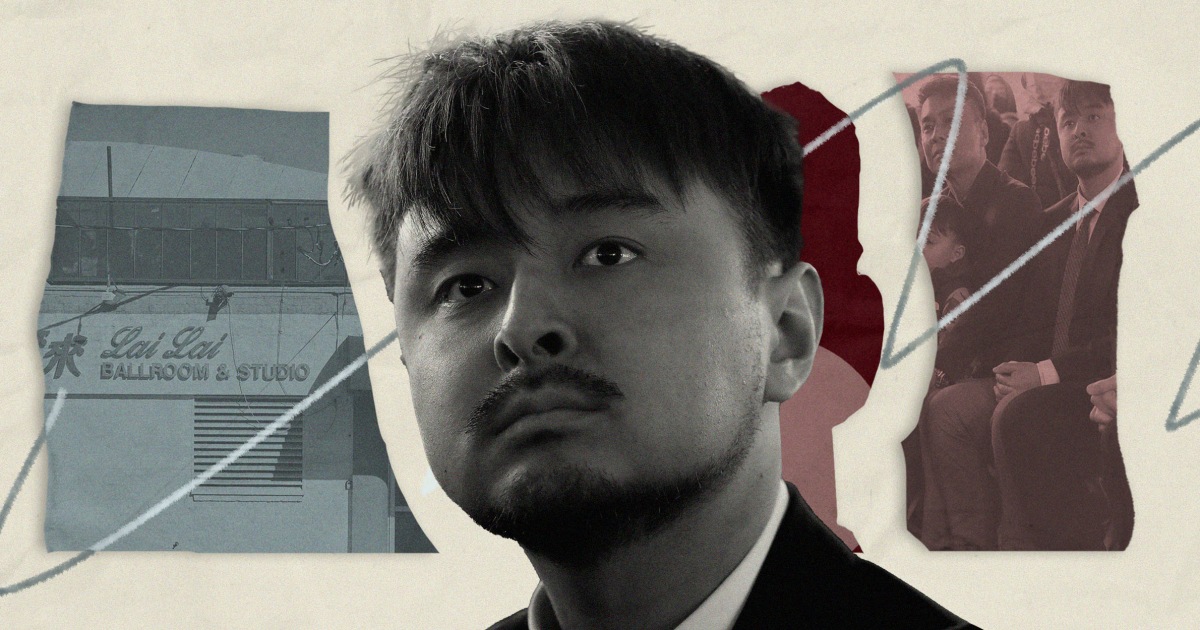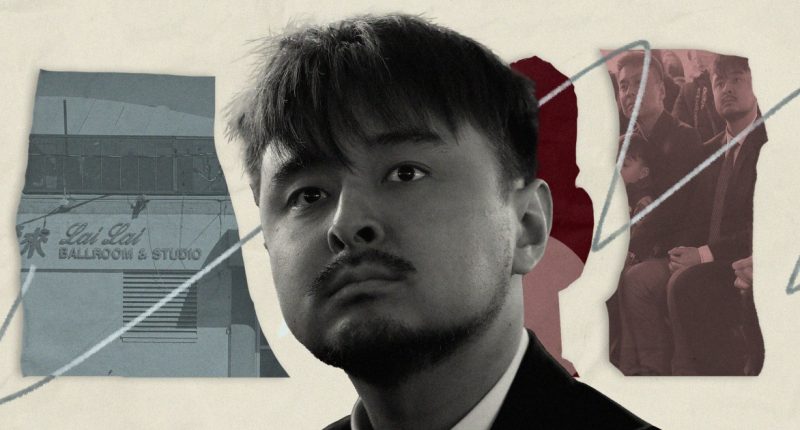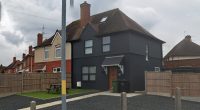
In the year since Brandon Tsay wrestled a firearm away from the hands of a mass gunman in the lobby of his family’s dance hall in Monterey Park, California, he’s experienced muscle spasms some nights — as if he’s trying to defend himself.
“I couldn’t sleep at night because it felt like this haunting presence was over me and I was anxious all the time,” he said.
Tsay said his anxiety has lessened since getting mental health help last year. But he says what he calls a “golden bubble” around his heavily Asian American community has burst, and the reality of gun violence has sunk in. On the first anniversary of the shooting on Jan. 21, Tsay is calling for more reforms to gun legislation.
“People are really scared,” he told NBC News. “We really see a need to restrict assault weapons, especially the abuse of power and using such weapons without proper training or licensing or knowing how to safely operate a weapon of that caliber.”
A year ago, Huu Can Tran, 72, killed 10 people and wounded nine at the now-closed Star Ballroom Dance Studio before heading to the Lai Lai Ballroom & Studio, where Tsay confronted and disarmed him. Tran killed himself the next day. While law enforcement has still not identified a motive, those who knew him say that Tran was part of the ballroom community.
Tsay had been closing up the front office for the night when he heard a sound coming from the shooter’s weapon. Harrowing surveillance footage shows a violent shoving match as Tsay managed to get a hold of the weapon — described as a “semi-automatic assault pistol” — from Tran and point it at him.
Having gone through that experience, Tsay said he still feels that people have the right to protect themselves through firearms — but that there needs to be a line drawn.
“Things of that caliber, like weapons of mass destruction — which is what they are — can be highly destructive,” Tsay said. “They need to be restricted somehow. You can’t just have anybody who wants one, get one.”
California has some of the strictest gun laws in the country, banning assault weapons and requiring strong background checks. But the federal national background check system has been heavily criticized for its loopholes, including a provision that allows dealers to sell weapons while the background check is still pending after a third business day.
Tsay said his family’s ballroom reopened a few weeks after the incident. While many have been contending with the fear of another violent event, Tsay said the community has kept dancing. And last weekend, their dance hall hosted a memorial event featuring mental health resources, a dance lesson and, of course, a community dance party.
“The grieving process was something that we wanted to have a resilience through,” he said in December.
Healing took some time, Tsay said. And in the weeks after the shooting, the studio remained closed. He and his family, who shut down the space during the height of the pandemic and struggled to get their patrons back, wondered if the tragedy would cement the end of their dance hall. But both the public and longtime patrons responded enthusiastically.
“They just realized that the identity of dance itself was something that stood as a monument to our strength, so we didn’t want that to go,” Tsay said. “If we really closed the business, if we really closed off the dance community, that would be admitting that the gunman, the perpetrator, would have won.”
The ballroom, he said, has been a fixture for many Asian Americans and other immigrants for some time. After his grandmother opened the studio more than three decades ago, his mother, Yvonne Hwei Fung Lin, joined the business, taking on managing duties and developing a mission to help immigrant instructors get on their feet.
“For dancers who immigrated over at that time, there wasn’t really a space for them to say, ‘Hey, this is my private studio.’ It was really erratic, scheduling space-to-space with their students,” Tsay said. “We gave them the space … to be rooted so you can have this anchor for this life in America.”
In the early days, the studio was also an escape for his family of four, he recalled, who crammed into a one-bedroom apartment when he was young. For him, he says, it still feels like home.
“The dance community was a very kind and nurturing household. When I wasn’t in school, and if I wasn’t at home, I would probably be at the dance studio studying, playing, sleeping,” Tsay said. “Their lives, their stories really interested me.”
Source: | This article originally belongs to Nbcnews.com










